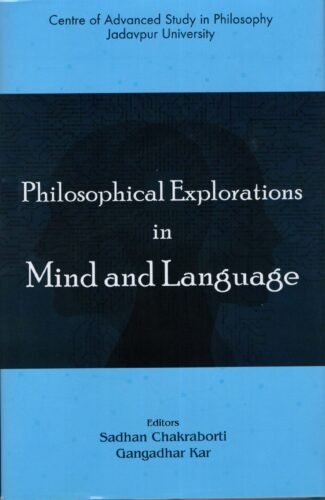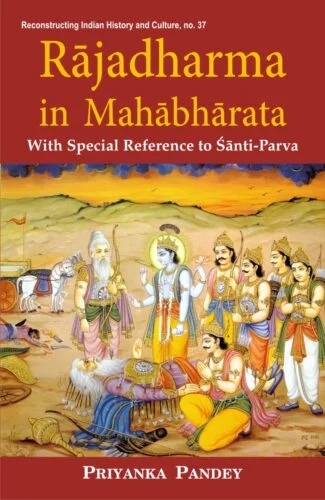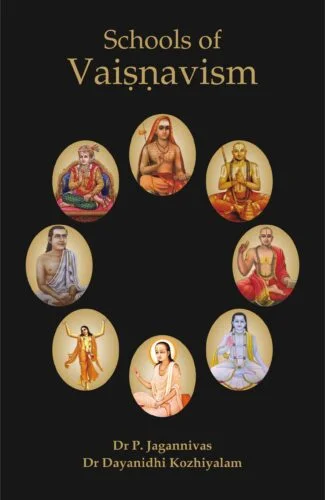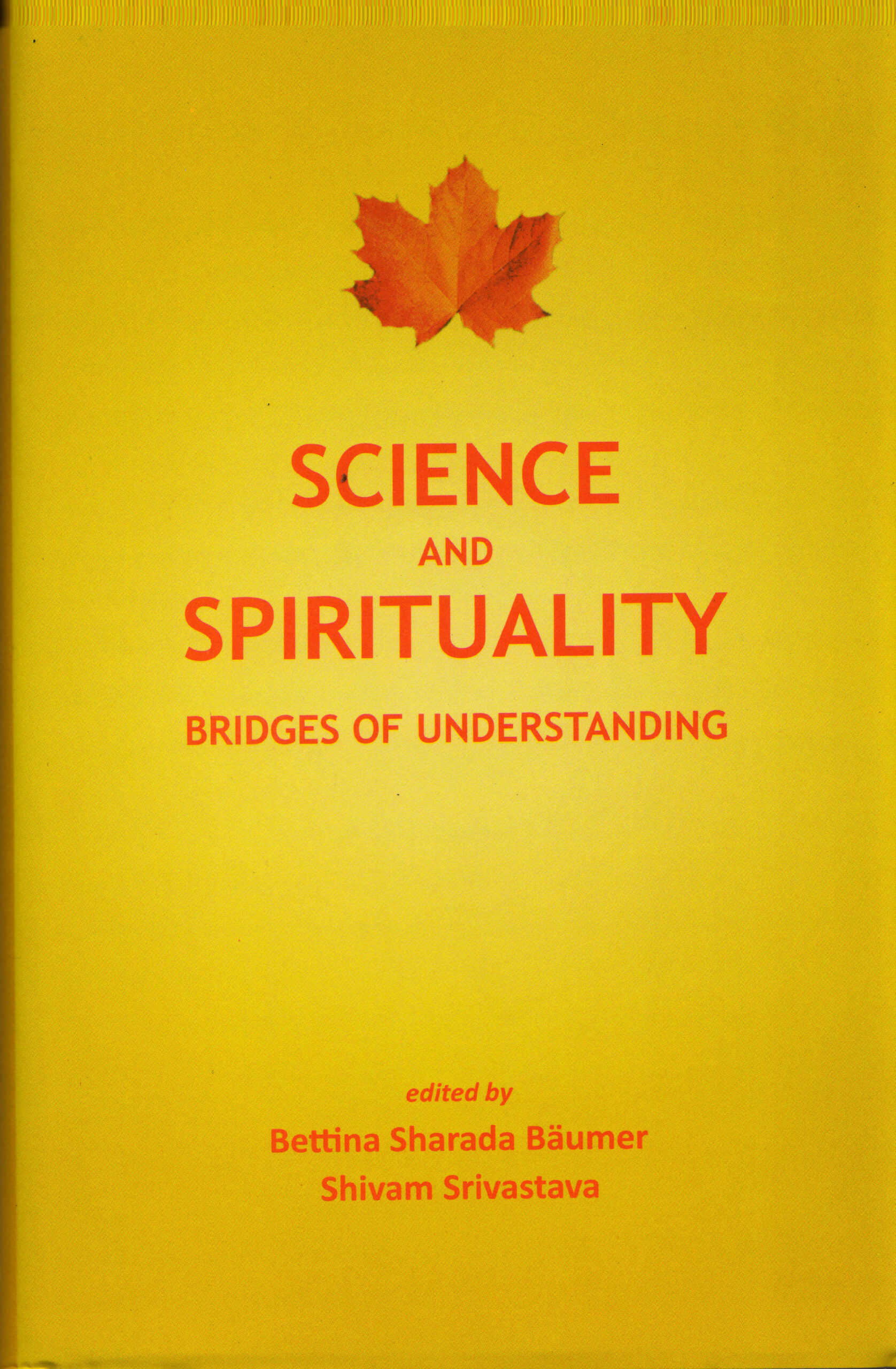Showing 37–48 of 80 results
This book represents the philosophy of language in Navya-Nyaya, based upon an analysis of the “Verbal Suffix Chapter” (Akhyatavada) of Gangesha’s Tattvacintamani. Since this chapter elaborates what kind of verbal understanding is generated and discusses related issues, the book demonstrates the main features of that philosophy of language and serves as a good introduction to that. The analysis mainly deals with Gangesha, but in some cases it refers to Raghunatha. Since the book is an attempt to pursue philological exactness and philosophical analysis, it is hoped to interest not only Sanskrit scholars, but also philosophers in general.
The book consists of four lectures. Lecture I clarifies Gangesha’s view of the meaning of the suffixes of a finite verb, which (meaning) is greatly disputed among the Navya-Nyaya philosophers, the Mimamsa philosophers, and the Grammarians. Lecture II investigates how Gangesha determines the meaning of words and illustrates that his method bears upon ontological categories of Vaisheshika. Lecture III deals with Gangesha’s “Five Definitions of Invariable Concomitance Section” (Vyaptipancaka) and elucidates the relation between meaning and the logical structure of the definitions. The lecture also provides diagrams as a tool to represent the structure. Lecture IV explains the realistic standpoint of Navya-Nyaya by clarifying the concept of the counterpositive (pratiyogin) of absence (abhava), or a thing whose existence is negated, focusing on empty terms or non-factual expressions such as “a round triangle”, “the present King of France”, “a rabbit’s horn”, and so forth. The lecture delineates how Udayana, Gangesha, and Raghunatha observed and, as the time passed, did realism thoroughly in language analysis.

This souvenir condenses the centenary celebration of the Narayana Gurukula, providing glimpses of timeless wisdom imparted through guru-parampara and bringing together people from all walks of life, bound by a shared commitment to unitive understanding, globally.
One Hundred Suns commemorates the centenary of the Narayana Gurukula, celebrating its growth from humble beginnings into a global movement dedicated to a contemplative life based on the wisdom teachings of Narayana Guru. Recognizing that “man does not live by bread alone”, the Gurukula values enduring happiness through the guidance of the Guru’s Word.
This collection of articles provides readers with glimpses of timeless wisdom imparted through the guru-paramparÀ, a lineage that has nourished generations of disciples. The Gurukula brings together individuals from all walks of life – seniors and juniors, aspirants and adepts, Eastern and Western – bound by a shared commitment to unitive understanding. The personal factor in each case is intact, keeping dogma and credo at bay.
True wisdom transcends distinctions of personal outlook or cultural background, making no divisions between optimism and pessimism, liberal and conservative, orthodox and heterodox, contemplative and active, or Eastern and Western. There is an urgent need for new literature that unifies rather than divides, that balances synthesis with analysis, and that introduces Absolutist norms to provide a steady frame of reference – without which, unchecked fragmentation persists. The articles in this souvenir represent a step toward integration and coherence, and are a testament to undivided perennial wisdom, lighting the way forward as we step into the next century grounded in enduring values, leading to lasting Happiness.

These volume aims at exploring certain philosophical truths relating to the syntax and the semantics of the language. The essays are written from the Western and Indian philosophical perspectives such as that of Descartes, logical positivists, Quine, Davidson, cognitive scientists and of Navya-Nyāya, Vaiśeṣika, R̥gveda, Vedāṅga, Mīmāṁsā, Vyākaraṇa and Vedānta.
The theme of this collection of essays emerges from the area of interface between mind and language. The volume aims at exploring certain philosophical truths relating to the syntax and the semantics of the language we think in and the language we use for a purpose.
These essays are written from the Western philosophical perspective as well as from the Indian philosophical perspective. The philosophical research pursued by the contributors of this volume extends to the Indian schools of Navya-Nyāya, Vaiśeṣika, R̥gveda, Vedāṅga, Mīmāṁsā, Vyākaraṇa and Vedānta.
On the Western counterpart it covers the philosophical researches of British empiricists, Descartes, logical positivists, Quine, Davidson, cognitive scientists, linguists like Chomsky and others. Serious researchers in the area of syntax and semantics either in the Western tradition or in the Indian tradition will have important materials relevant to their research in reading this collection.
Students of philosophy, linguistics and cognitive science, and general readers interested in the areas of syntax and semantics will benefit immensely from consulting this collection.
The founding fathers of the quantum revolution were deeply invested in questions of meaning. Distanced from theology but also from the deterministic objective Materialism of the classical model of physics, several of them, including Bohr, Heisenberg, Pauli, Schrödinger and Bohm looked to Eastern philosophies for explanations. This search for meaning beyond church and clockwork seems to have stagnated in our times. Yet, recent advances in physics and the reinterpretation of historic experiments have given us new ways to understand and ask fundamental philosophical questions. These approaches include further considerations of the Copenhagen Interpretation of Bohr, Heisenberg and others, the Transactional Interpretation of John G. Cramer and Ruth Krastner, Quantum Bayesianism (QBism) of Fuchs, Schack and David Mermin; questions related to the meaning of observation and measurement; the Orthodox view of quantum mechanics; collapse of the wave function and time and quantum field theory. The present volume brings together a number of these approaches discussed by leading contemporary physicists. It also expands the consideration of the quantum revolution to include its larger implications for philosophy, mathematics, biology and global understanding, reopening the questions of consciousness and meaning which occupied the minds of the early thinkers of Quantum Mechanics.

The volume explores questions that reflect upon the literary, directly or tangentially, through the discourses and contexts of the linguistic, philosophical and cultural traditions of India. Questions of the literary are complemented and integrated with explorations of diverse cultural and reflective traditions.
“This book is the preliminary outcome of a research project at The English and Foreign Languages University, Hyderabad. Its thrust area is literary pedagogy, dealing with the textual canons, critical traditions and theoretical frameworks applied in literary studies. The present volume is an attempt to explore critical discourses on conceptualizations of literature and criticism in the discipline of English literary studies in India and canonical configurations of the predominantly Anglo-American canon of literary studies.
The contributing academics are from different universities who explored questions that reflect upon the literary, directly or tangentially, through the discourses and contexts of the literary, linguistic, reflective and cultural traditions of India.
This volume thus attempts to bring together diverse inquiries, locating and reflecting upon them. Finally, it features a conversation about the humanities in India with D. Venkat Rao, a distinguished academic scholar, whose work focuses on cultural memory and cultural difference.”

This book deals with all aspects of politics based on Mahabharata and addresses topics such as dandaniti, origin of state, the seven elements of state, functions of state, types of state, kinship, judiciary and administration in detail, among many other issues of political importance.
The idea of politics hardly finds an expression elsewhere as clearly as in Mahabharata. This work thus investigates the political thought explicit in Shanti-Parva and emphasizes that Mahabharata is a text in the study of politics, apart from the perception of it being a great epic and a text of high literary value. Whatever be the notion of politics we contemplate upon, it finds an articulation in Mahabharata. As the Greek tradition of thinking is the base of Western politics, Shanti-Parva of Mahabharata represents the Indian notion of political thinking, though there remain many similarities and dissimilarities between the two systems.
This volume navigates one to how to read Mahabharata as a political text; the idea of political thoughts, the constituting principles of politics and the political institutions in Shanti-Parva; and the relevance of these political thoughts in modern time. Topics such as dandaniti, origin of state, the seven elements of state, functions of state, types of state, kinship, judiciary and administration are discussed in detail, among many other issues of political importance.
The book collects, analyses and examines the internal evidences from Shanti-Parva and also from other parvans of Mahabharata to reach a decisive conclusion, making the work a composite result of textual analysis, related literature and subjective contemplation. It clearly shows that the idea of politics is not separated from the idea of ethics. Rather they are intertwined.
This anthology, consisting of fourteen essays, deals with a variety of themes that are of central importance for an authentic appreciation of the philosophical core of the Indian culture. The readers will find here illuminating discussions on various issues that bear witness to the critical thinking and deep reflection on the part of the author that have enabled her to carefully expose the subtle internal divergences that nourish the Indian conceptual world.
Based on arduous and painstaking research, these essays focus on a range of topics. There are several essays on multiple aspects of the large themes of time and consciousness, penetrating analysis showing how in the ancient discourse ideas of klesha (affliction), abhyasa (practice) and karuna (compassion) as well as on women and values are dealt with. There are also deliberations on the themes of religious diversity and the need for an encounter of world religions along with the attempt to explore India’s self-image. All these have contemporary relevance, as these essays clearly bring out the distinctive character of a living culture.

This volume makes a comparative study of the different values and approaches, philosophized and propagated by Mahatma Gandhi and Sri Aurobindo not only for the social, moral, political and spiritual life of Indians, but also for the benefit of the entire mankind.
Regeneration of Values: A Comparative Study of the Thoughts of Mahatma Gandhi and Sri Aurobindo reflects upon the different concepts of social, moral, political and religious values philosophized and propagated by Mahatma Gandhi and Sri Aurobindo.
Both these two great thinkers of nineteenth-twentieth century India tried to reconstruct the social, moral, political and spiritual life of the entire mankind through the revival of the ancient social and cultural values of India. However, the means adopted by them towards such regeneration of values were different in many respects. Here an attempt has been made to make a comparative study of their concepts of the different values as well as the approaches taken by them.
Sapiens and Sthitaprajna studies the concept of a wise person in the Stoic Seneca and in the Bhagavadgita. Although the Gita and Seneca’s writings were composed at least two centuries apart and a continent apart, they have much in common in recommending a well-lived life. This book describes how in both a wise person is endowed with both virtue and wisdom, is moral, makes right judgements and takes responsibility for actions. A wise and virtuous person always enjoys happiness, as happiness consists in knowing that one has done the right thing at the right time.
Both Seneca and the Gita demand intellectual rigour and wisdom for leading a virtuous and effective life. They provide guidelines for how to become and be wise. Both systems demand a sage to be emotionally sound and devoid of passions. This leads to mental peace and balance, and ultimately tranquillity and happiness. While surveying these similarities, this study also finds differences in their ways of application of these ideas. The metaphysics of the Gita obliges the sage to practise meditation, while the Stoics require a sage to be a rational person committed to analysing and intellectualizing any situation.
This comparative study will be of interest to students of both Ancient Western and Ancient Indian Philosophy. Practitioners of Stoicism and followers of the Gita should find the presence of closely-related ideas in a very different tradition of interest while perhaps finding somewhat different prescriptions a spur to action.

The book provides a detailed study of the Vaisnava acaryas such as Sri Ramanuja, Sri Nimbarka, Sri Madhvacarya, Sri Caitanya, Sri Vallabha, Sri Sankaradeva and Sri Swami Narayana and their religious philosophies vis-à-vis Sri Sankara’s jnana theory.
The book provides a detailed study of the acaryas such as Sri Sankara, Sri Ramanuja, Sri Nimbarka, Sri Madhvacarya, Sri Caitanya, Sri Vallabha, Sri Sankaradeva and Sri Swami Narayana and their philosophies. The schools of Vaisnavism belonging to these venerable acaryas primarily promulgate for the seeker an alternate method which emphasizes that samsara is real, liberation is real, and worship and meditation are equally real, not mock battles. God is accepted as the Ultimate Reality – merciful and gracious, the seat of all auspicious attributes – by whose grace alone one can be freed from the bondage of samsara. These schools are well established in the Vedas and do not make a distinction between the Absolute (Brahman) and God (ISvara) or equate jiva with Brahman. Most of these schools, identify ISvara or Brahman with Visnu, who has a particular form (Catur-Bhujam, Sanku-Cakra, etc.) which distinguishes Him from other gods. All the acaryas of the schools of Vaisnavism had Lord Mahavisnu as the Supreme Reality, but for each one of them the Lord presented Himself in a different form. For example, for Sri Ramanuja, it was Sriman Narayana, for Sri Nimbarka, Sri Vallabha and Sri Caitanya it was Sri Krsna and for Sri Ramananda it was Sri Rama.
This volume should invoke keen interest in the philosophical community and among the followers of Vaisnava Sampradaya, along with a wide range of students, researchers and teachers of all religious philosophies.

The book provides a detailed study of the Vaisnava acaryas such as Sri Ramanuja, Sri Nimbarka, Sri Madhvacarya, Sri Caitanya, Sri Vallabha, Sri Sankaradeva and Sri Swami Narayana and their religious philosophies vis-à-vis Sri Sankara’s jnana theory.
The book provides a detailed study of the acaryas such as Sri Sankara, Sri Ramanuja, Sri Nimbarka, Sri Madhvacarya, Sri Caitanya, Sri Vallabha, Sri Sankaradeva and Sri Swami Narayana and their philosophies. The schools of Vaisnavism belonging to these venerable acaryas primarily promulgate for the seeker an alternate method which emphasizes that samsara is real, liberation is real, and worship and meditation are equally real, not mock battles. God is accepted as the Ultimate Reality – merciful and gracious, the seat of all auspicious attributes – by whose grace alone one can be freed from the bondage of samsara. These schools are well established in the Vedas and do not make a distinction between the Absolute (Brahman) and God (ISvara) or equate jiva with Brahman. Most of these schools, identify ISvara or Brahman with Visnu, who has a particular form (Catur-Bhujam, Sanku-Cakra, etc.) which distinguishes Him from other gods. All the acaryas of the schools of Vaisnavism had Lord Mahavisnu as the Supreme Reality, but for each one of them the Lord presented Himself in a different form. For example, for Sri Ramanuja, it was Sriman Narayana, for Sri Nimbarka, Sri Vallabha and Sri Caitanya it was Sri Krsna and for Sri Ramananda it was Sri Rama.
This volume should invoke keen interest in the philosophical community and among the followers of Vaisnava Sampradaya, along with a wide range of students, researchers and teachers of all religious philosophies.

A dialogue between science and spirituality is a necessity in our times where both, differences and mutual enrichment of the two great fields of human approach to reality, are taking place. This volume addresses this need from the perspective of different areas of science and spiritual traditions. The starting point is the intention of the founder of the IIAS, Dr S. Radhakrishnan, who saw that both the practice of science and experience of spirituality are intimately related to being human. Although much thought has gone into their relationship, the present volume intends to broaden and deepen the possibility of a harmonious integration, necessary to overcome the present-day crisis of humanity.
From the side of science, the contributors come from the fields of physics, plant biology, neuroscience, psychology, ecology and philosophy of science; and from the side of spirituality, following traditions and spiritual masters are represented: PÀtaðjala Yoga, Trika aivism of Kashmir, VedÀnta, Buddhism, Christianity, Theosophy, and Rabindranath Tagore, Swami Vivekananda and J. Krishnamurti. The deliberations included topics such as Awareness in plants, Neuroplasticity and Habit, appropriate use of terms such as Consciousness and Energy in different contexts, clarifying several issues concerning the on-going dialogue. The contributing scholars have built bridges of understanding, thus encouraging the reader to proceed further in this quest.
A dialogue between science and spirituality is a necessity in our times where both, differences and mutual enrichment of the two great fields of human approach to reality, are taking place. This volume addresses this need from the perspective of different areas of science and spiritual traditions. The starting point is the intention of the founder of the IIAS, Dr S. Radhakrishnan, who saw that “both the practice of science and experience of spirituality are intimately related to being human”. Although much thought has gone into their relationship, the present volume intends to broaden and deepen the possibility of a harmonious integration, necessary to overcome the present-day crisis of humanity.
From the side of science, the contributors come from the fields of physics, plant biology, neuroscience, psychology, ecology and philosophy of science; and from the side of spirituality, following traditions and spiritual masters are represented: PÀtaðjala Yoga, Trika Œaivism of Kashmir, VedÀnta, Buddhism, Christianity, Theosophy, and Rabindranath Tagore, Swami Vivekananda and J. Krishnamurti. The deliberations included topics such as Awareness in plants, Neuroplasticity and Habit, appropriate use of terms such as “Consciousness” and “Energy” in different contexts, clarifying several issues concerning the on-going dialogue. The contributing scholars have built “bridges of understanding”, thus encouraging the reader to proceed further in this quest.
| There are no products |